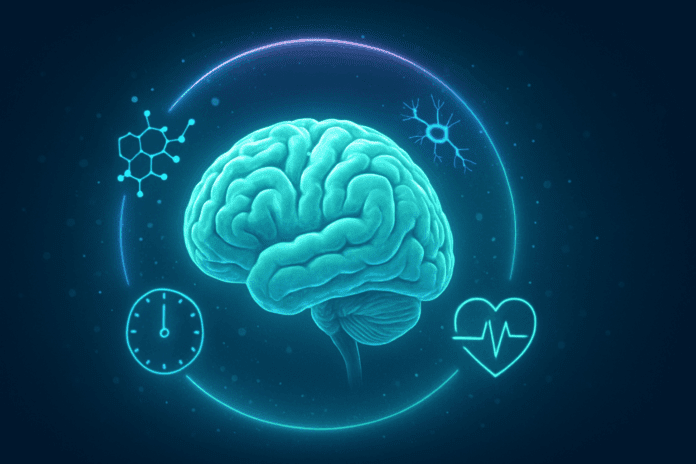Understanding the Role of Cortisol in Brain Aging and Stress
Cortisol is often described as the body’s primary stress hormone, and for good reason. It plays a central role in the stress response, mobilizing energy and sharpening alertness in the face of perceived threats. Yet while cortisol is essential for short-term survival, prolonged elevation of this hormone can have far-reaching consequences for cognitive health, neurological resilience, and longevity. Chronic high cortisol levels have been linked to hippocampal atrophy, impaired memory consolidation, and increased risk for neurodegenerative conditions such as Alzheimer’s disease. From a neurological perspective, excess cortisol is not merely a byproduct of stress but a biologically active agent capable of disrupting the brain’s structural and functional integrity over time.
You may also like : Best Rated Nootropics for Brain Health: Top Supplements to Enhance Focus, Memory, and Longevity
This insight has prompted a surge of interest in strategies to modulate cortisol levels, particularly in the context of enhancing long-term brain health. As modern life continues to impose relentless psychological demands, the appeal of a supplement to reduce cortisol becomes increasingly compelling. Researchers and clinicians alike are exploring how targeted interventions might not only buffer the impact of chronic stress but also promote neuroplasticity, emotional regulation, and cognitive vitality well into older age. Understanding cortisol’s dual nature is the first step toward developing effective interventions that strike a balance between natural physiological reactivity and long-term brain resilience.
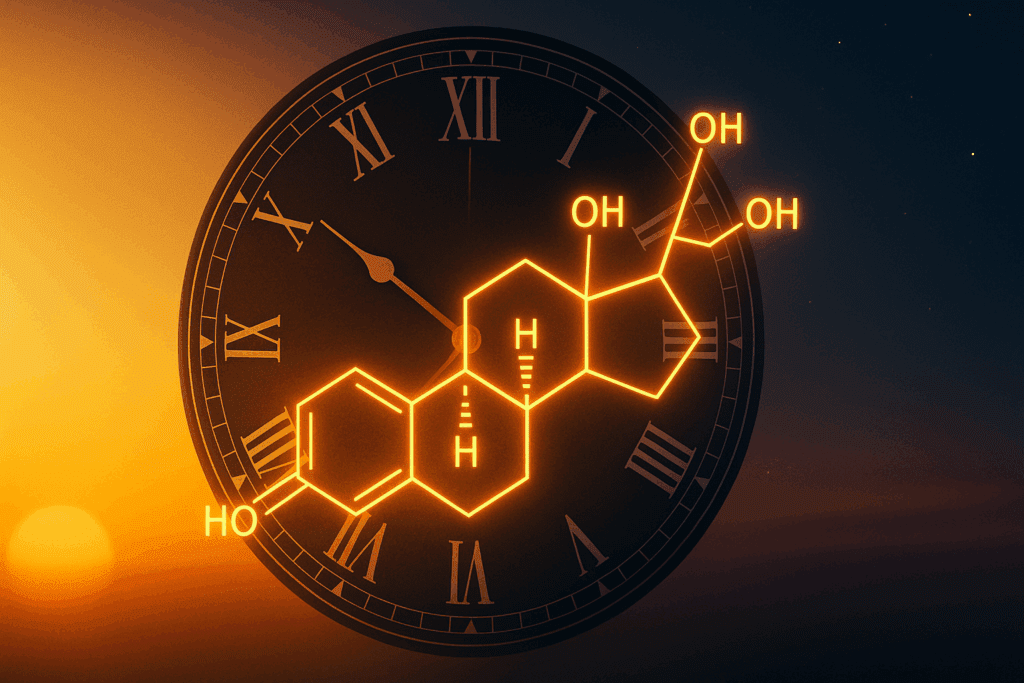
The Cortisol Rhythm: Why Timing Matters for Brain Function
Cortisol secretion follows a circadian rhythm, typically peaking in the early morning and tapering off by evening. This diurnal pattern is critical for wakefulness, mood regulation, and cognitive performance. When cortisol rhythms become dysregulated—due to chronic stress, shift work, poor sleep, or aging—the consequences can be significant. Blunted morning peaks or elevated nighttime levels are associated with impaired memory, slower processing speed, and disrupted emotional regulation. These patterns are early indicators of what some researchers describe as “cognitive frailty,” a precursor to neurodegenerative decline.
Therefore, a supplement to reduce cortisol may be most effective when it supports the restoration of natural hormonal rhythms rather than indiscriminately lowering cortisol throughout the day. For example, certain adaptogens or nutrients may help recalibrate the cortisol awakening response (CAR), the surge that typically occurs within the first hour of waking. Others may specifically reduce evening cortisol levels to support restful sleep and overnight brain recovery. Understanding these subtleties is essential for both clinicians and individuals interested in targeting cortisol as part of a brain longevity protocol.
The Biochemical Impact of Cortisol on Cognitive and Neural Function
Cortisol exerts its effects throughout the body, but its influence on the brain is particularly pronounced. It crosses the blood-brain barrier with ease and binds to glucocorticoid receptors in regions critical for memory and executive function, especially the hippocampus and prefrontal cortex. In acute doses, cortisol can enhance alertness and consolidate emotional memories, which is adaptive in short bursts. However, when cortisol remains elevated for extended periods—as is often the case with chronic psychological stress—its effects become maladaptive. Sustained exposure can impair synaptic plasticity, reduce dendritic branching, and compromise the brain’s ability to form new connections.
Over time, this biochemical stress response begins to wear on the structural foundations of cognition. In particular, hippocampal shrinkage has been well-documented in both animal and human studies involving elevated cortisol. These changes are not just theoretical; they correlate strongly with measurable declines in memory performance, decision-making speed, and emotional self-regulation. Additionally, excess cortisol appears to alter neurotransmitter systems, such as reducing serotonin and dopamine activity, which contributes to feelings of anxiety, depression, and mental fatigue. Therefore, exploring the best cortisol reducer is not simply a matter of mood enhancement, but a critical aspect of preserving neural health across the lifespan.
Why the Modern Brain Needs Cortisol Regulation More Than Ever
The 21st century has introduced a paradox: technological advancements have improved many aspects of life, yet they have also introduced a constant stream of psychological stimuli that our nervous systems are not evolutionarily equipped to handle. Between work pressures, digital overstimulation, economic instability, and global uncertainties, the modern individual faces a persistent psychological load that keeps cortisol levels elevated far beyond what our biology intended. This chronic activation of the stress axis doesn’t just influence daily wellbeing; it accelerates the aging process at the cellular and neurological levels.
In this context, the growing interest in a supplement to lower cortisol levels reflects a broader cultural recognition that stress is not a fleeting inconvenience but a central health concern. People are beginning to understand that effective stress management is as essential to cognitive longevity as nutrition, exercise, or sleep. For those in midlife or beyond, the stakes are even higher, as the cumulative effects of stress begin to manifest in observable cognitive changes. Supplements that address cortisol directly offer a potential avenue for slowing brain aging and protecting against neurodegeneration, especially when integrated into a broader strategy that includes lifestyle, behavioral, and psychological interventions.

Adaptogens and Herbal Compounds as Natural Cortisol Modulators
One of the most promising categories of supplements for cortisol regulation involves adaptogens—herbs and botanicals that help the body adapt to stress and restore physiological balance. Among the most studied of these is ashwagandha (Withania somnifera), a plant with a long history in Ayurvedic medicine. Clinical trials have shown that standardized ashwagandha extracts can significantly reduce cortisol levels in chronically stressed individuals, leading to improvements in mood, sleep, and cognitive clarity. The herb appears to modulate the hypothalamic-pituitary-adrenal (HPA) axis, the central system governing cortisol secretion, and may offer long-term neuroprotective effects when used consistently.
Another well-regarded adaptogen is Rhodiola rosea, which has demonstrated the ability to reduce fatigue, enhance mental performance, and blunt cortisol responses under stress. Rhodiola’s benefits appear to stem from its influence on monoamine neurotransmitters and its capacity to increase cellular resistance to oxidative stress. Similarly, Holy Basil (Ocimum sanctum) has shown promise in reducing cortisol while simultaneously enhancing memory and reducing symptoms of anxiety. These herbs exemplify the concept of the best cortisol detox: rather than abruptly suppressing cortisol, they help recalibrate the body’s stress response mechanisms, allowing for more sustainable hormonal balance over time.
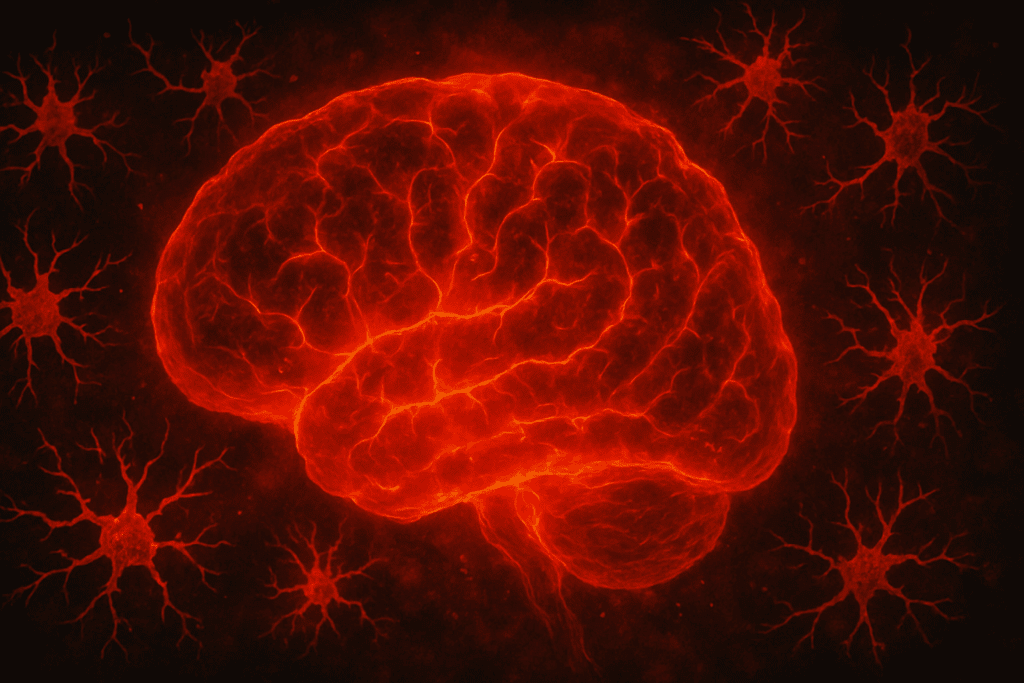
The Inflammation Connection: Chronic Stress, Cortisol, and Neuroinflammation
Another layer of complexity in the cortisol-cognition relationship involves inflammation. Prolonged cortisol elevation leads to dysregulation of the immune system, often triggering a state of low-grade, chronic inflammation that is particularly damaging to brain tissue. Microglial cells, the brain’s immune sentinels, become overactive in response to inflammatory signals, releasing cytokines that impair synaptic plasticity and accelerate neuronal aging. This inflammatory cascade is strongly implicated in the pathogenesis of mood disorders, dementia, and age-related cognitive impairment.
Therefore, one potential route for finding the best cortisol reducer may be to target systemic inflammation. Curcumin, a compound in turmeric, has been shown to inhibit inflammatory pathways such as NF-kB while also modulating cortisol responses to stress. Similarly, resveratrol and quercetin possess both anti-inflammatory and cortisol-lowering properties. These polyphenols, when combined with omega-3 fatty acids and antioxidants, may offer a synergistic effect that not only calms the stress response but also shields the brain from long-term inflammatory damage.
Nutritional Support for Cortisol Balance and Brain Health
Beyond herbs, several essential nutrients play a key role in regulating cortisol and maintaining cognitive resilience. Magnesium is particularly notable for its calming effect on the nervous system. It serves as a cofactor for numerous enzymatic reactions and has been shown to blunt excessive activation of the HPA axis. Low magnesium levels are associated with heightened stress reactivity, poor sleep quality, and increased risk for depression—all of which contribute to elevated cortisol. Supplementing with magnesium, especially in bioavailable forms like magnesium glycinate, may be an effective strategy for both lowering cortisol and supporting brain longevity.
Vitamin C is another crucial nutrient involved in cortisol regulation. It is required for the proper functioning of the adrenal glands, where cortisol is produced. Studies have shown that high-dose vitamin C can reduce cortisol spikes during acute stress, and ongoing supplementation may help buffer the hormonal impact of chronic psychological strain. Omega-3 fatty acids, particularly EPA and DHA, also support cortisol regulation by reducing inflammation and enhancing cell membrane fluidity in neurons. A well-rounded nutritional approach to stress management may serve as a foundational form of anti cortisol medication, especially when dietary insufficiencies are present.
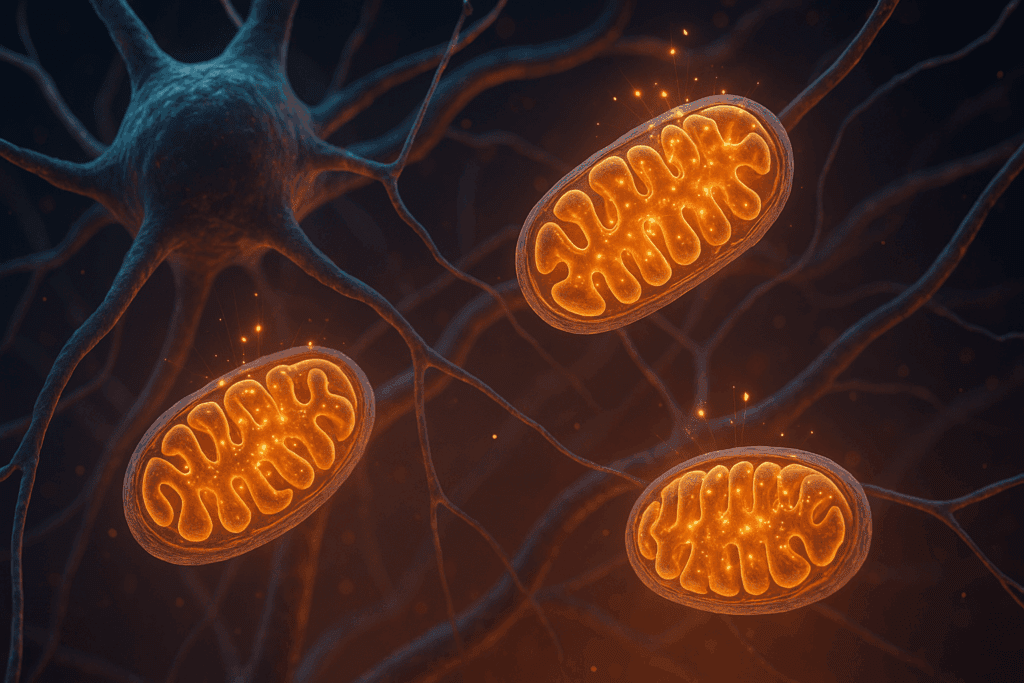
Cortisol, Mitochondria, and Cellular Energy in the Brain
Mitochondria are the energy-producing organelles in cells, including neurons, and they play a key role in regulating brain function and stress responses. Chronic exposure to high cortisol levels impairs mitochondrial efficiency, reduces ATP production, and increases the generation of reactive oxygen species (ROS). These effects are particularly detrimental in brain regions with high metabolic demands, such as the hippocampus and prefrontal cortex.
Supplements aimed at supporting mitochondrial health are emerging as an important component of any strategy involving a supplement to reduce cortisol. Coenzyme Q10, acetyl-L-carnitine, and PQQ (pyrroloquinoline quinone) are examples of nutrients that may support mitochondrial function while reducing oxidative stress. By enhancing cellular energy availability, these compounds may improve mental clarity, focus, and emotional stability—especially in individuals who experience burnout or cognitive fatigue linked to chronic stress. Supporting mitochondrial resilience could therefore be a foundational element of both cortisol regulation and cognitive longevity.
Amino Acids and Neurochemical Regulation of Stress
Amino acids, the building blocks of neurotransmitters, also play an essential role in modulating stress responses. L-theanine, a non-protein amino acid found in green tea, has garnered significant attention for its calming effects without sedation. It promotes alpha brain wave activity, associated with relaxed alertness, and has been shown to reduce cortisol levels in stressful situations. Its mechanism of action involves increasing GABA and serotonin levels while buffering glutamate, the brain’s primary excitatory neurotransmitter. L-theanine represents a powerful natural option for individuals seeking a supplement to reduce cortisol without the side effects associated with pharmaceutical sedatives.
Another amino acid of interest is phosphatidylserine, a phospholipid that supports cellular membrane integrity and neuronal signaling. Research suggests that phosphatidylserine supplementation can blunt cortisol responses to exercise and mental stress, improving focus and recovery. Its neuroprotective properties may make it particularly valuable for aging individuals experiencing cognitive fatigue or decline. Tyrosine, a precursor to dopamine and norepinephrine, also helps maintain cognitive function under stress by replenishing neurotransmitter reserves that are depleted by high cortisol. When used in a targeted manner, these amino acids form a sophisticated toolkit for maintaining composure and clarity under pressure.
Pharmaceutical Interventions: A Clinical Perspective on Anti Cortisol Medication
While natural remedies often take center stage in discussions of stress management, there are situations in which pharmaceutical approaches may be appropriate. Anti cortisol medication, such as mifepristone, is currently under investigation for its potential to modulate cortisol receptors and mitigate the effects of hypercortisolism in clinical populations. In cases of Cushing’s syndrome or severe depression, where cortisol dysregulation is pronounced and treatment-resistant, pharmacological options may provide essential relief. However, these medications are generally reserved for diagnosed conditions and must be administered under medical supervision due to potential side effects and contraindications.
Selective serotonin reuptake inhibitors (SSRIs), though not directly categorized as cortisol modulators, have been shown to reduce HPA axis hyperactivity in certain individuals. By enhancing serotonergic tone, SSRIs may indirectly lower cortisol levels and reduce symptoms of anxiety and depression. Similarly, beta-blockers like propranolol can attenuate the physical symptoms of stress—such as increased heart rate and blood pressure—thereby reducing downstream cortisol production. While these pharmaceuticals may not qualify as the best cortisol reducer for the average health-conscious individual, they highlight the complexity of hormonal regulation and the need for personalized approaches in clinical care.
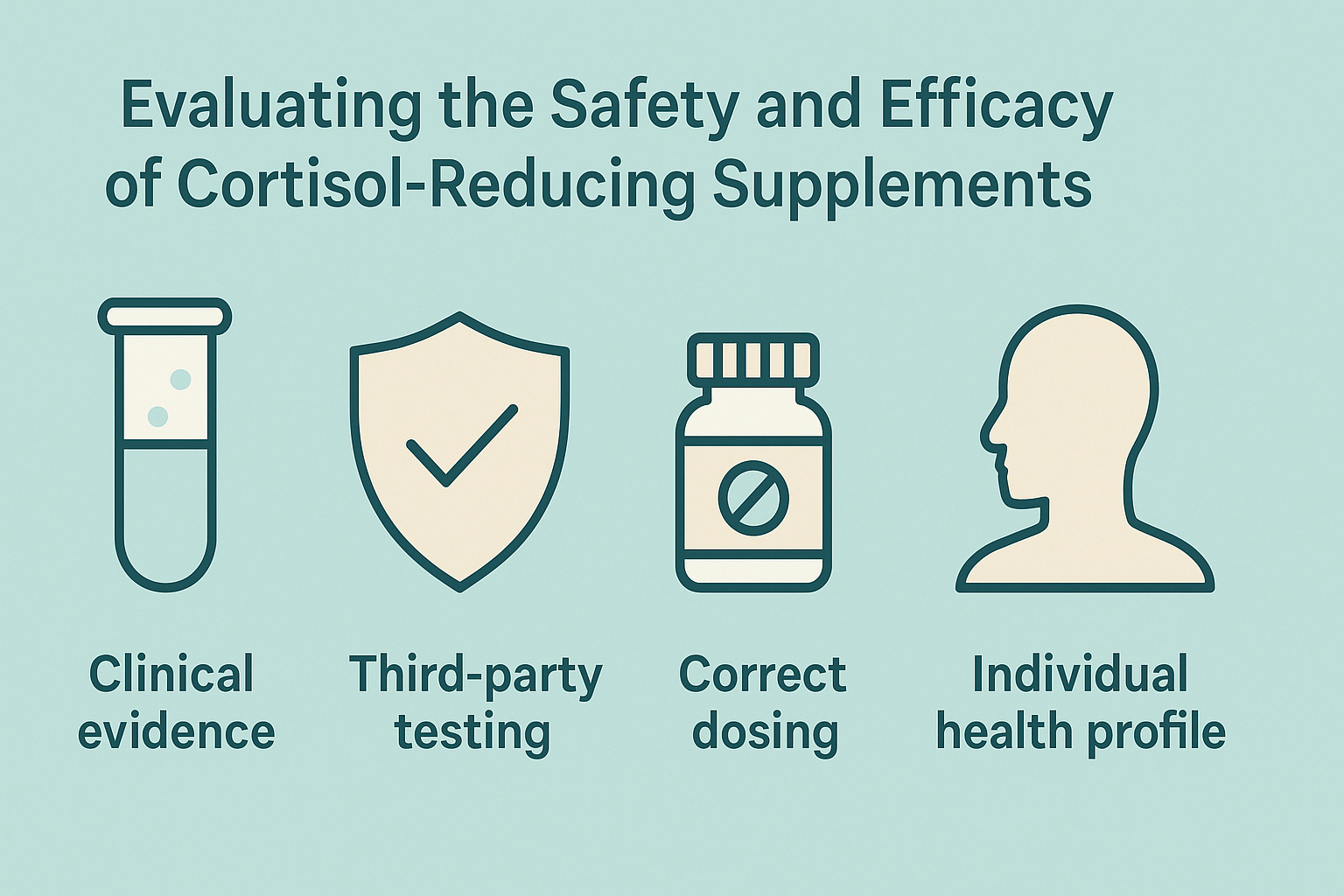
Evaluating the Safety and Efficacy of Cortisol-Reducing Supplements
The market for supplements to lower cortisol levels is expanding rapidly, but not all products are created equal. Efficacy depends not only on the active ingredients but also on dosage, formulation, and individual biochemistry. Third-party testing, clinical backing, and transparent labeling are essential markers of quality in this space. When evaluating options, consumers should prioritize evidence-based formulas with well-documented ingredients and standardized extracts. For example, KSM-66 ashwagandha is a patented extract with multiple peer-reviewed studies supporting its stress-reducing effects.
Safety is another crucial consideration. Although most natural cortisol-lowering supplements are well-tolerated, interactions with medications or underlying health conditions can pose risks. Individuals taking thyroid hormones, blood pressure medications, or antidepressants should consult with a healthcare provider before initiating a new supplement regimen. Moreover, the long-term use of any supplement should be periodically reevaluated to avoid unintended consequences, such as hormonal imbalances or nutrient depletion. Ultimately, even the best cortisol detox strategy must be tailored to individual needs, preferences, and health status.

Integrating Cortisol Reduction into a Broader Longevity Strategy
Supplements can be powerful tools for supporting cognitive longevity, but they are most effective when integrated into a comprehensive lifestyle approach. Sleep hygiene, regular physical activity, mindful breathing, and social connection all influence the HPA axis and contribute to emotional regulation. Meditation and mindfulness practices have been shown to lower cortisol and enhance gray matter density in brain regions associated with self-awareness and executive control. Physical exercise, especially aerobic and resistance training, not only reduces baseline cortisol levels but also enhances brain-derived neurotrophic factor (BDNF), a key player in neuroplasticity and memory formation.
From this perspective, the search for the best cortisol reducer is not just a matter of finding the right capsule but cultivating a life architecture that fosters resilience and balance. Supplements offer biochemical support, but they must be matched by behavioral practices that reinforce the body’s innate capacity for homeostasis. When used synergistically, these interventions can slow cognitive aging, reduce the risk of neurodegenerative disease, and improve quality of life well into advanced age.
Frequently Asked Questions (FAQ): Cortisol Reduction, Brain Health, and Supplementation Strategies
1. What are some overlooked lifestyle factors that can make a supplement to reduce cortisol more effective?
While supplementation plays a key role, many people underestimate how strongly certain daily habits can amplify or diminish its effects. For instance, meal timing has a significant impact on cortisol; skipping breakfast or fasting excessively can lead to cortisol spikes that undermine your supplement regimen. Natural light exposure in the morning also helps regulate circadian rhythm, which in turn balances cortisol secretion throughout the day. Even hydration status influences adrenal function, meaning that chronic dehydration can counteract the benefits of any supplement to reduce cortisol. Pairing these foundational lifestyle strategies with evidence-based supplements creates a synergistic effect, enhancing overall hormonal regulation.
2. Can a supplement to lower cortisol levels help with age-related memory decline?
Emerging studies suggest that certain supplements may indirectly support memory by modulating cortisol. As people age, cortisol regulation becomes less efficient, which contributes to hippocampal shrinkage and impaired memory retrieval. Using a high-quality supplement to lower cortisol levels may reduce neuroinflammation and oxidative stress, two drivers of age-related cognitive decline. For example, compounds like phosphatidylserine and bacopa monnieri have shown promise in enhancing memory performance while also reducing cortisol in response to stress. While supplements are not a cure-all, they may serve as valuable tools when integrated into a broader brain longevity strategy.
3. How does a best cortisol detox differ from a general stress management routine?
The best cortisol detox goes beyond standard relaxation techniques by targeting biological pathways responsible for cortisol production and clearance. Unlike general stress relief strategies, such as yoga or journaling, a focused detox protocol may include specific nutrients, herbal adaptogens, and mitochondrial support compounds that help the body metabolize and excrete excess cortisol more efficiently. For example, nutrients like magnesium and vitamin C support adrenal recovery, while glutathione precursors enhance detoxification capacity. The goal is not only to feel calmer but to optimize the underlying systems that regulate cortisol metabolism and clearance.
4. Are there unique considerations for athletes or high-performers when using anti cortisol medication or supplements?
Absolutely. High-performance individuals often operate in a state of elevated sympathetic nervous system activity, which can lead to chronically high cortisol despite appearing physically fit. While anti cortisol medication is typically reserved for clinical cases, elite athletes may benefit from adaptogenic supplements that help sustain performance while reducing recovery time. However, the use of a supplement to reduce cortisol should be carefully timed; taking it immediately before training might blunt necessary acute stress responses. Instead, focusing on post-exercise recovery supplementation ensures cortisol is kept in check without interfering with performance adaptations.
5. Can cortisol-lowering strategies impact weight management and metabolism?
Yes, and the effects can be surprisingly pronounced. Elevated cortisol promotes visceral fat accumulation and can disrupt insulin sensitivity, making weight loss more difficult. A carefully selected supplement to lower cortisol levels may help normalize appetite signals, reduce emotional eating, and support more stable blood glucose levels. For individuals experiencing stubborn weight gain around the midsection, adaptogens like ashwagandha or nutrients like chromium may assist in restoring metabolic balance. Long-term weight management is most successful when cortisol is regulated in tandem with caloric intake and physical activity.
6. What are some emerging trends in identifying the best cortisol reducer for different needs?
One exciting development is the use of wearable biometric tracking and hormone testing to personalize cortisol management protocols. Rather than choosing a generic supplement to reduce cortisol, consumers can now identify their specific cortisol patterns throughout the day. For example, some may benefit from nighttime supplementation to reduce sleep-disrupting cortisol surges, while others need support in the early afternoon to combat energy crashes. AI-driven supplement matching tools and DNA-based personalization platforms are also beginning to influence how the best cortisol reducer is selected based on individual biology. This marks a shift toward a truly personalized approach to hormonal health.
7. Are there any long-term risks associated with using a supplement to reduce cortisol on a daily basis?
While most natural supplements are safe when used as directed, long-term use requires careful monitoring. Some herbal compounds may interact with medications or influence thyroid, blood pressure, or sex hormone levels over time. For example, high doses of licorice root, sometimes included in cortisol formulas, can raise blood pressure if used chronically. The key is to periodically reassess your supplement routine and work with a qualified practitioner to ensure the formulation remains the best cortisol reducer for your evolving health status. Cycling off certain supplements may also help maintain efficacy and reduce the risk of tolerance.
8. How can a supplement to lower cortisol levels be used to support emotional resilience?
There is growing interest in the psychological applications of cortisol-reducing strategies. Chronic high cortisol is closely linked to heightened emotional reactivity, mood swings, and even burnout. A well-formulated supplement to lower cortisol levels can promote emotional steadiness by supporting neurotransmitters like serotonin, dopamine, and GABA. For example, L-theanine not only reduces cortisol but also increases alpha brain wave activity, enhancing calm focus. Over time, this physiological support can improve emotional intelligence, social connection, and interpersonal effectiveness—all hallmarks of long-term psychological resilience.
9. What are some non-oral delivery formats for cortisol regulation beyond pills and capsules?
Innovations in supplement delivery are expanding the options available for those seeking the best cortisol detox. Transdermal creams containing phosphatidylserine or magnesium can bypass digestive degradation and offer more consistent absorption. Liposomal formulations allow for enhanced bioavailability by encasing active ingredients in phospholipid spheres, increasing their penetration into cells. Sublingual sprays and tinctures are gaining popularity for fast-acting stress relief in acute situations. These alternative formats provide flexibility, especially for individuals with digestive issues or those seeking more targeted cortisol control throughout the day.
10. How might future medical innovations change the way we approach anti cortisol medication?
Future therapies may shift from hormone suppression to modulation, using smart molecules that adapt to individual physiological needs. Researchers are exploring compounds that selectively block cortisol receptors in the brain while preserving peripheral cortisol activity necessary for immune and metabolic health. Other innovations may include RNA-based therapies that influence how cortisol-related genes are expressed, offering a more refined alternative to blunt-force anti cortisol medication. The rise of digital health platforms and wearable biosensors may also allow real-time feedback loops between stress data and supplement delivery. As science evolves, the most effective and safest anti cortisol solutions will likely be those that personalize treatment without disrupting the body’s natural rhythms.
Conclusion: Choosing the Best Cortisol Reducer for Brain Health and Stress Resilience
In an era where stress is ubiquitous and cognitive longevity is increasingly valued, the pursuit of safe and effective strategies to regulate cortisol has never been more relevant. Scientific research continues to highlight the critical role of cortisol in shaping brain function, emotional stability, and aging trajectories. Whether one seeks a supplement to reduce cortisol as part of daily wellness or requires targeted intervention in the face of persistent stress, the options are more nuanced and personalized than ever before.
From adaptogens like ashwagandha and Rhodiola to amino acids like L-theanine and phosphatidylserine, the range of natural options is both evidence-based and promising. These compounds work not by shutting cortisol down entirely, but by helping the body recalibrate its response to stress, preserving essential function while minimizing wear and tear. In more severe cases, anti cortisol medication may offer therapeutic value under clinical guidance. Still, even the most potent supplement to lower cortisol levels must be understood as one piece of a larger puzzle.
The best cortisol detox is, in truth, a lifestyle shift—one that honors the complex interplay between biology, behavior, and environment. Choosing the best cortisol reducer means selecting strategies that align with individual needs, are supported by science, and foster long-term vitality. As we navigate the demands of modern life, these tools can help us not only survive but thrive, sustaining mental clarity and emotional balance across decades of cognitive life.
Further Reading:
How Can You Reduce Cortisol Naturally? Supplements, Foods, and More

